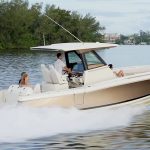To enhance the recreational use of public lands by the disabled, the Bureau of Land Management Friday signed a Memorandum of Understanding (MOU) with Disabled Sports USA. Recognizing the enormous value of promoting public-private partnerships that encourage people with disabilities to use public lands, the MOU creates a cooperative framework for programs and activities designed to increase the recreational use of public lands by disabled veterans and others with permanent disabilities.
“The Department of the Interior and the BLM are committed to ensuring equal access to outdoor recreation on public lands-particularly those activities that require specialized equipment or instruction,” said Deputy Secretary of the Interior David J. Hayes. “This MOU advances that important effort.”
BLM Director Bob Abbey added, “The long-term relationship the BLM and Disabled Sports USA established today will cultivate dialogue, generate ideas, and enhance access for persons with disabilities to outdoor activities on BLM-managed lands.” The MOU will remain in effect for five years, at which point the BLM and Disabled Sports USA can renew the agreement.
The demand for outdoor adventure and recreation activities for persons with disabilities continues to grow, and new equipment and access innovations are constantly expanding the possibilities for enjoyable, healthy, active, outdoor experiences. Additionally, veterans wounded and disabled in recent wars are increasingly seeking challenging outdoor activities to aid in their recovery and improve their quality of life. With this in mind, the BLM and Disabled Sports USA will use the MOU to jointly pursue projects and activities on public lands that are appropriate for persons with disabilities.
Moving beyond outdoor recreation, the MOU also aims to increase the participation of America’s wounded and disabled veterans and others with disabilities in the BLM’s public land-use planning process. This open process provides opportunities for persons with disabilities to engage in land management planning activities including access-enhancement projects and safety and environmental education programs.
Through this involvement, along with shared information, networking, and partnerships generated by the MOU, the BLM can incorporate ideas and innovation into policies, land-use plans, and permitting allocations while better accommodating and expanding opportunities for all-especially America’s disabled veterans and persons with disabilities.
“We at Disabled Sports USA welcome the MOU with the Bureau of Land Management as a way to promote recreation on our public lands for our nation’s disabled veterans and others with disabilities. Because of innovations in adaptive equipment and an increase in trained instructors, those of us with disabilities are experiencing greater accessibility to public lands,” said Kirk Bauer, executive director of Disabled Sports USA and a disabled Vietnam veteran. “This represents a wonderful opportunity to enjoy healthy, outdoor activities on public lands.”
Disabled Sports USA is a national, non-profit organization established in 1967 by disabled Vietnam veterans to serve the war injured. Through its national network of more than 100 chapters in 38 states, Disabled Sports USA offers sports rehabilitation programs to anyone with a permanent disability, including targeted programs for disabled veterans. In serving those with disabilities from visual impairments and spinal cord injuries to multiple sclerosis, cerebral palsy, and amputations Disabled Sports USA facilitates recreational activities on both public and private lands.
Under the MOU, the BLM and Disabled Sports USA will work together to promote outdoor recreation participation on public lands and foster health and fitness, independence, and social integration for veterans and other persons with disabilities. The benefits of participating in recreational activities such as skiing, snowboarding, kayaking, sailing, and whitewater rafting are proven to enhance individuals’ self-confidence, physical and mental well-being, and their quality of life.















